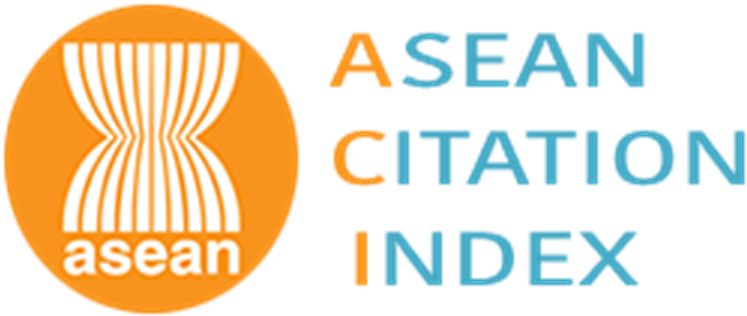การพัฒนารูปแบบสมรรถนะของผู้ประกอบการในอุตสาหกรรมเกษตรแปรรูปของไทยรองรับยุคไทยแลนด์ 4.0
Developing a Competency Framework to Empower SME Agro-Processing Entrepreneurs in Response to Thailand 4.0 Era
Abstract
งานวิจัยนี้มีวัตถุประสงค์ 1) เพื่อศึกษาสภาพปัจจุบันของผู้ประกอบการในอุตสาหกรรมเกษตรแปรรูปของไทยรองรับยุคไทยแลนด์ 4.0 2) เพื่อศึกษาองค์ประกอบการพัฒนาสมรรถนะของผู้ประกอบการในอุตสาหกรรมเกษตรแปรรูปของไทยรองรับยุคไทยแลนด์ 4.0 3) เพื่อสร้างรูปแบบการพัฒนาสมรรถนะของผู้ประกอบการในอุตสาหกรรมเกษตรแปรรูปของไทยรองรับยุคไทยแลนด์ 4.0 และ 4) เพื่อจัดทำคู่มือการพัฒนาสมรรถนะของผู้ประกอบการในอุตสาหกรรมเกษตรแปรรูปของไทยรองรับยุคไทยแลนด์ 4.0 โดยมีกลุ่มตัวอย่างที่ใช้ในการวิจัยครั้งนี้ ได้แก่ ผู้ประกอบการในอุตสาหกรรมเกษตรแปรรูปของไทยในเขตกรุงเทพมหานครและปริมณฑล กลุ่มผู้ตอบแบบสอบถาม จำนวน 415 คน และกลุ่มผู้เชี่ยวชาญในการสัมภาษณ์เชิงลึก จำนวน 10 คน เครื่องมือที่ใช้ในการวิจัยประกอบด้วย แบบสัมภาษณ์เชิงลึก และแบบสอบถาม สถิติที่ใช้ ได้แก่ ค่าเฉลี่ยส่วนเบี่ยงเบนมาตรฐาน และวิเคราะห์องค์ประกอบเชิงสำรวจ (Exploratory Factor Analysis) ผลจากการวิจัย พบว่า องค์ประกอบที่สำคัญส่งผลต่อการพัฒนาสมรรถนะของผู้ประกอบการในอุตสาหกรรมเกษตรแปรรูปของไทยรองรับยุคไทยแลนด์ 4.0 ประกอบด้วย 3 องค์ประกอบหลัก และมี 21 องค์ประกอบย่อย องค์ประกอบหลักที่ 1) ด้านความรู้ (Knowledge) มีความสำคัญอยู่ในระดับมาก (x̄ = 3.90) มี 7 องค์ประกอบย่อย องค์ประกอบหลักที่ 2) ด้านทักษะ (Skills) มีความสำคัญอยู่ในระดับมาก (x̄ = 3.94) มี 4 องค์ประกอบ และองค์ประกอบหลักที่ และ 3) ด้านคุณลักษณะ (Attributes) เฉพาะบุคคลมีความสำคัญอยู่ในระดับมาก (x̄ = 4.29) มี 5 องค์ประกอบ โดยรูปแบบสมรรถนะของผู้ประกอบการในอุตสาหกรรมเกษตรแปรรูปของไทยรองรับยุคไทยแลนด์ 4.0 ได้รับการลงมติเห็นชอบในการประชุมสัมมนากลุ่มย่อยด้านความเหมาะสมในการนำไปใช้ ระดับมากที่สุด คิดเป็นร้อยละ 100 และผลการจัดทำคู่มือการพัฒนาสมรรถนะของผู้ประกอบการในอุตสาหกรรมเกษตรแปรรูปของไทยรองรับยุคไทยแลนด์ 4.0 พบว่ามีความเหมาะสม และเป็นไปได้ในการนำไปประยุกต์ใช้อยู่ในระดับมากที่สุด คิดเป็นร้อยละ 100
The objectives of this research are 1) to study the current state of Thailand’s SME agro-processing entrepreneurs in response to Thailand 4.0 policy; 2) to explore competency-based development elements for the target group; 3) to create a relevant competency development model; and 4) to prepare a competency development guidance manual. The sample group included SME agro-processors of the Bangkok Metropolitan Region and peripheral areas. A group of 415 respondents and 10 experts for in-depth interviews participated in the study. The questionnaire and in-depth interviews served as tools for data collection. Average, standard deviation and Exploratory Factor Analysis were employed to analyze the data. As results, critical factors of entrepreneurial competencies development were composed of 3 main components and 21 sub-elements. Aspects of core components obtaining high rate ranking were revealed as 1) Knowledge ( = 3.90) consisting of 7 sub-factors, 2) Skills ( = 3.94) consisting of 4 sub-factors and 3) personal attributes ( = 4.29) consisting of 5 sub-factors. Pursuant to a resolution by the sub-group meeting, the established competency framework for these SME Agro-Processors received utmost approval regarding the suitability for further application, with 100% agreement. Additionally, the guidance manual for entrepreneurial competence development was found to be appropriate, uncovering 100% feasibility of its application.
Keywords
[1] S. Boonma, Mathematics and Sufficiency Economy, Bangkok: Phithak Printing Office, 2007, pp. 21 (in Thai).
[2] Get to know Thai SME. (2017). Office of Small and Medium Enterprises Promotion 2017–2021 [Online]. Available: https://www.sme.go.th/ upload/mod_download/ทำ�ำ ความรู้จักกับ%20 SME%20ไทย.pdf
[3] Department of Industrial Promotion Ministry of Industry. (2015). Project to adjust business plans and increase capacity of SMEs [Online]. Available: http://old.industry.go.th/oig/index. php/2016-05-02-07-30-27/item/download/ 525_7055b2 d0adce1551aa293d9160cab43e
[4] Ministry of Industry (2016). Strategy for the development of Thai Industry 4.0 over 20 years (2017–2036). [Online]. Available https://waa. inter.nstda.or.th/stks/pub/2017/20171114-oie. pdf
[5] W. Pannitamai, Development of Competency Models for Human Resource Management, Public and Private Management, 2007, pp. 2–30.
[6] Office of the Civil Service Commission. (2017) Human resource development to drive policy. “Thailand 4.0” [Online]. Available: https:// www.ocsc.go.th/sites/default/files/attachment/ page/raayngaan_nbs.2_runthii_9.pdf
[7] D.C. McClelland, “Identifying Competencies with Behavioral-event interviews,” Psychological Science, vol. 9, no. 5, pp. 331–339, 1999.
[8] S. Prama, “Development of competency criteria for evaluation of the administrators of the educational technology center, non-formal education administration office,” Ph.D. dissertation, Ed.D. Adult Education, Srinakharinwirot University, 2007 (in Thai).
[9] P. Weerawat, “Development of competency models for human resource management,” Journal of Public and Private Management, vol. 13, no. 1, pp. 1-34, May 2006 (in Thai).
[10] Ministry of Industry. (2016, October). Thai Industry 4.0 Development Strategy for 20 years (2017–2036). Available : http://www.oie.go.th/ assets/portals/1/fileups/2/files/Industrial%20 Master%20Plan/thailandindustrialdevelopme ntstrategy4.0.pdf
[11] D. F. Kuratko and R. M. Hodgetts. Entrepreneurship: A Contemporary Approach. Orlando: Harcourt Brace College Publishers, 2007.
DOI: 10.14416/j.kmutnb.2023.07.015
ISSN: 2985-2145





